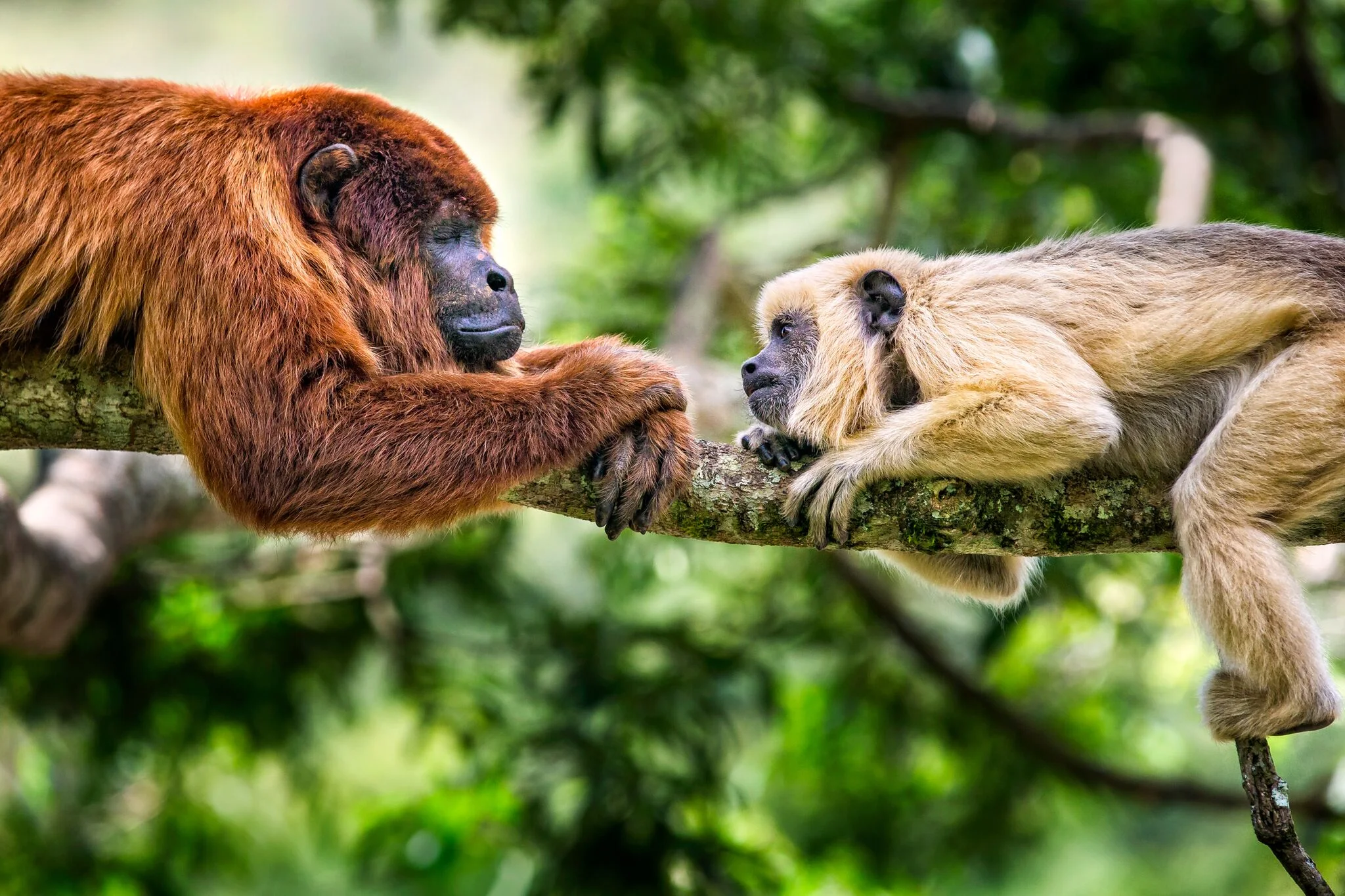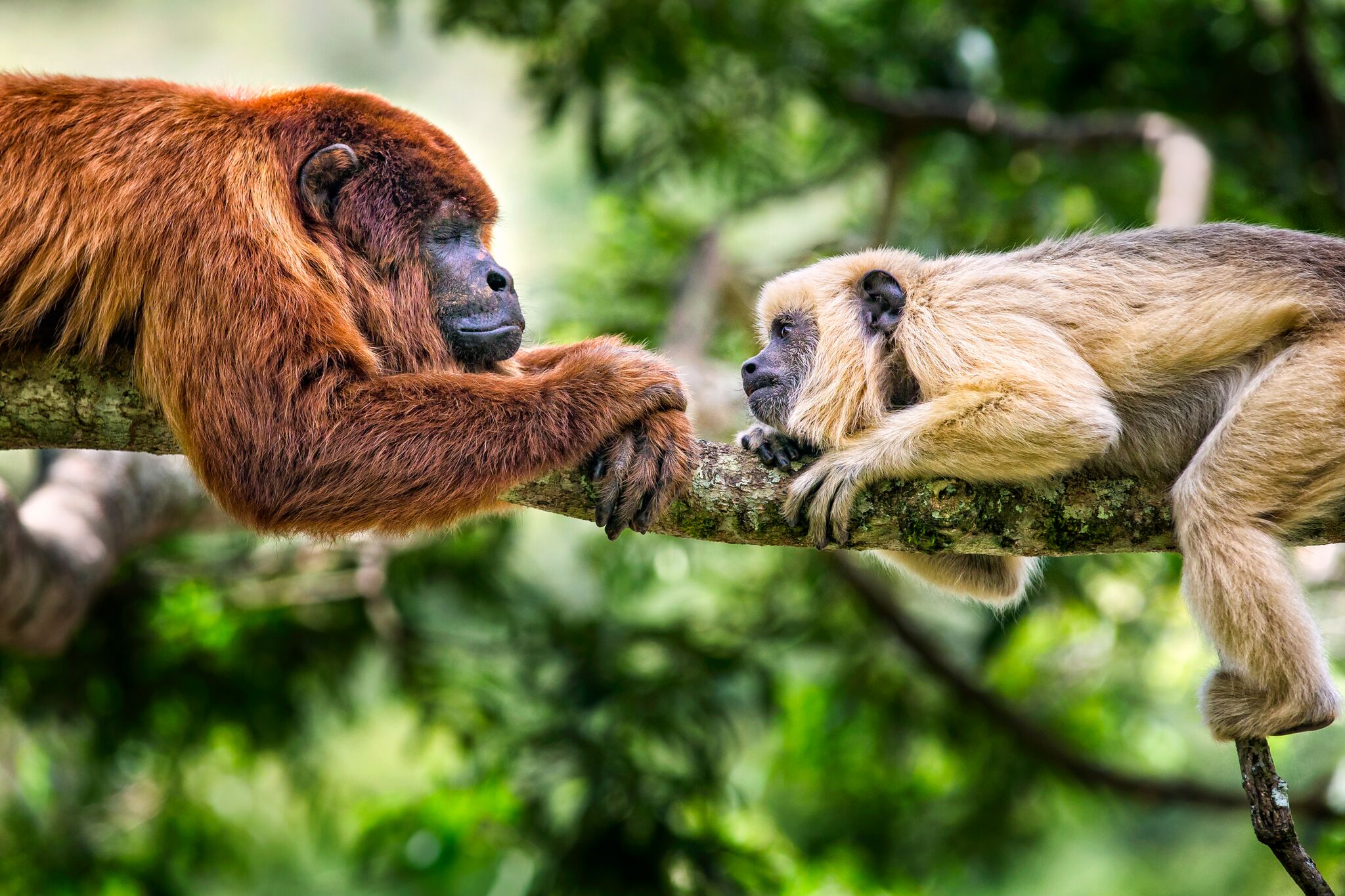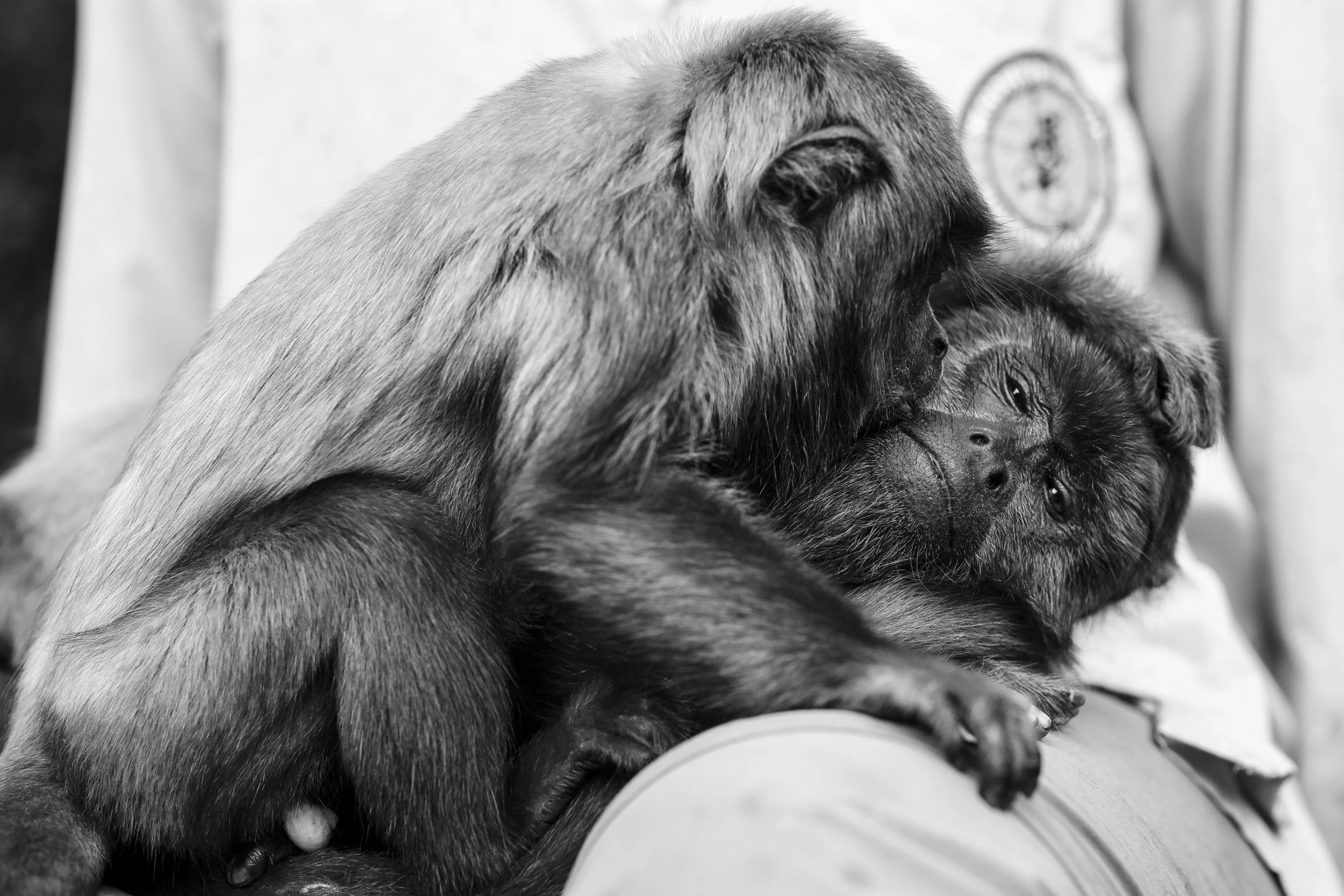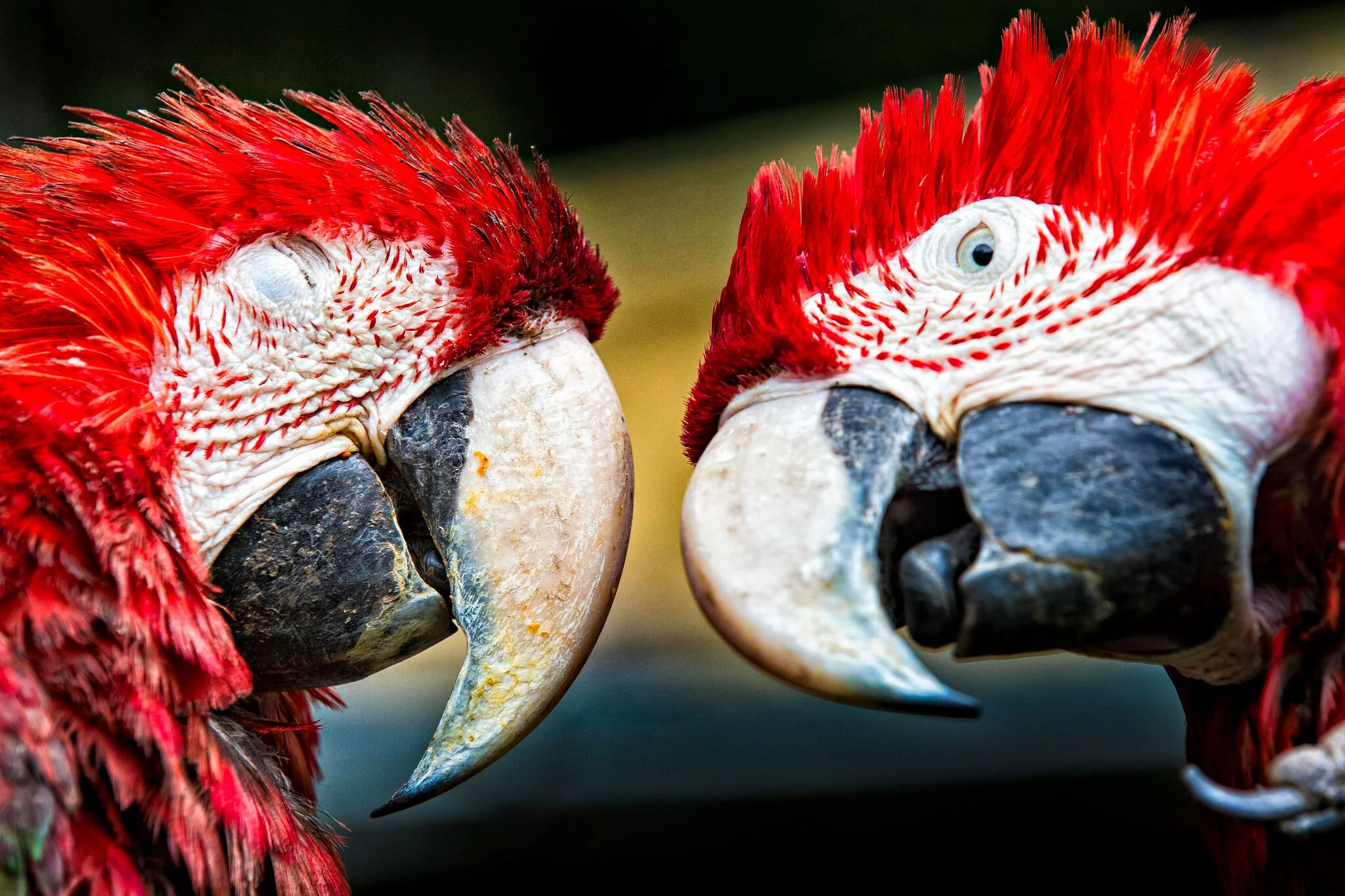PHOTO: TRACEY BUYCE
The biggest threats to Bolivian wildlife are deforestation and their commercial value (estimated at $10 billion annually) in the animal trafficking market. Bolivia and other Latin American countries are vulnerable to the trade because they are rich in biodiversity, so as a byproduct of this worsening issue, animal refuges are necessary. Nestled in a corner of the Yungas forest in Bolivia, La Senda Verde or "Green Path" is a conservation project intent on making a difference. Providing care for animals who are the survivors of illegal trafficking, the team at La Senda Verde combine a natural habitat with education and sustainable eco-tourism. The animals in their care range from parrots to endangered spider monkeys, and even Andean bears. All creatures great and small are welcomed, treated, and cared for with the best quality care possible. Each of these creatures has a story, and many of them are moving and heartbreaking.
PHOTO: TRACEY BUYCE Howler monkeys.
PHOTO: TRACEY BUYCE Baby Spider monkey in nursing care.
“Technically it’s a wildlife refuge...but it’s much more than that. It’s not only a refuge for animals but for people too.”
Animal trafficking is a major problem in Northern Bolivia, especially in the region of Yungas. There is an adventure tourism industry that promotes trips down "the world's most dangerous road" from La Paz to Yungas, which also means that many outsiders come in contact with precious habitats day in and day out, but it also means that vulnerable species are easily accessible. As of 2008, La Senda Verde is obligated by the Environmental Department of Affairs and the La Paz Government to accept any animal that has been intercepted by the government via illegal trafficking and the law forbids rescued animals to be returned to the wild. Within the last four years alone, animal trafficking has sky-rocketed in Bolivia, which means the population at La Senda Verde has quadrupled, and appropriate accommodations is a major concern. As of January 2017, the organization houses 701 rescues and receives new animals on a weekly basis.
PHOTO: TRACEY BUYCE A capuchin monkey undergoing a procedure.
"At La Senda Verde, we want to concentrate our efforts on education," said Vicky Ossio, Founder at La Senda Verde. "If we do not educate on animal trafficking, then it is very difficult for it to stop." In February 2017, The New York Times reported that 865,000 acres of land are being deforested annually in Bolivia. This is driven by farmers who want to grow the soy plant, which produces high yields and large profits. Every acre of land gained by agriculture, is an acre of land stripped away from nature, depleting natural resources, destroying delicate ecosystems. But where do we draw the line between what is good for the economy, for the local people, and what is good for the earth around us?
PHOTO: TRACEY BUYCE Birds, and especially parrots, are the most highly trafficked animals in the world, with over 4,000 species being traded worldwide.
PHOTO: TRACEY BUYCE
There is no simple answer or quick solution to addressing the problem of animal trafficking, which is why the work at La Senda Verde is so important. Humans want to engage with the wild and see the wonders of the natural world, but in doing so, we sometimes have a tendency to damage it. By setting up operations amidst a popular tourism route in Bolivia, La Senda Verde is able to protect the animals who call the Yungas forests home, and also allows visitors to enjoy the beauty of Bolivia. "La Senda Verde just kind of happened; we didn't plan anything," said Marcelo Levy, founder of La Senda Verde. "The objective when we started was a kind of eco-tourist destination. After two years working on that, I rescued a capuchin monkey, and some months later another monkey was rescued in Curacao, and from there, we decided to make a sanctuary for wildlife."
PHOTO: TRACEY BUYCE Marcelo Levy, Co-Founder of La Senda Verde, has a special bond with the creatures of La Senda Verde.*
“Animals as well as humans...we all belong to this world. And we have to understand that we have to share and we have to live together.”
PHOTO: KRISTI ODOM Ocelot.
“They do deserve a second chance, and so we are here to give them the second chance...”
PHOTO: KRISTI ODOM Andean bear.
PHOTO: KRISTI ODOM
La Senda Verde's eco-friendly approach has allowed the organization to succeed in its conservation efforts, and also educate the masses on the importance of conservation and protecting the environment. The people that travel to La Senda Verde come from all over the globe, and carry the message about their positive work back home. Once an animal has been rescued, the staff at La Senda Verde guarantee that optimal scientific and technical handling conditions are in order. "[Animal trafficking] is a big business, and that's why it's so difficult to fight against," Ossio said. Each species is different, and their programs are different than a "one-size-fits-all" approach that commodified sanctuaries and zoos take. To date, there are four major projects in progress at La Senda Verde: the Tapir and Deer Enclosure, the Ocelot Enclosure, the Toucan Aviary, and the Nursery Cage where baby monkeys find refuge.
PHOTO: TRACEY BUYCE
La Senda Verde partners with local schools and colleges to promote a program for conservation and the mitigation of illegal animal trafficking. Through tours, students have the ability to get up close and personal with the rescued animals and learn more about how they came to be here, and where they originally came from. Schools from La Paz can also take part in a special camping trip that allows attendees to learn local conservation efforts while enjoying nature. "[Animal trafficking] is a big business, and that's why it's so difficult to fight against," Ossio said. Because La Senda Verde is privately owned and operated, they always welcome the aid of volunteers, and those who wish to attend can stay for weeks, or even months. Speaking from experience, photographer Tracey Buyce recounts the time she spent at La Senda Verde. "Animal trafficking and poaching is a huge epidemic and problem, and I think that it's something that gets shelved," Buyce said. "I knew I could bring awareness to my area, and possibly help to raise funds and awareness for the animals of Bolivia." As of today, La Senda Verde's Rotational Program, Care Bear Program, Services Exchange Program and Ambassador Program are all open to individuals from all over the world.
PHOTO: KRISTI ODOM Vicki Ossio, co-founder of La Senda Verda talks to school children about conservation and wildlife.
To support the efforts of La Senda Verde, or to learn more about the organization, click here
Watch PWB TV Season 1 Episode 4: La Senda Verde:
*Note: The staff at La Senda Verde do not encourage human-animal contact, and PWB does not endorse human-animal contact or selfies with endangered wildlife. We decided to run this image to emphasise the profound and unique relationship between the founders of La Senda Verde and some of the creatures they have rescued.
You will also like













